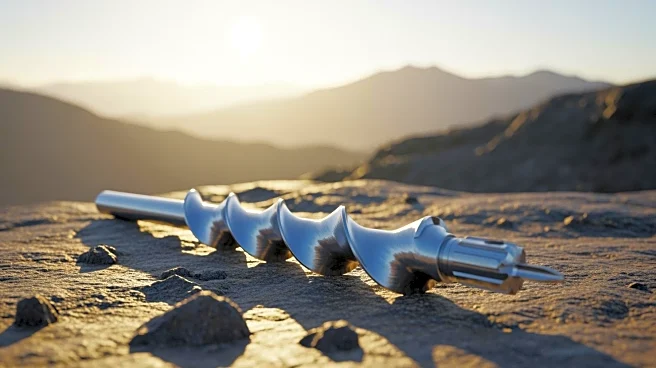What's Happening?
Canadian company Kobrea Exploration has become the first international entity to receive a permit to drill in the Malargüe Western Mining District in Mendoza, Argentina. This district, which spans approximately 20,000 square kilometers, has been closed
to exploration for decades. Kobrea's CEO, James Hedalen, expressed optimism about the potential of the region, highlighting the company's efforts to gain local trust and support. The company plans to focus on the El Perdido Project, targeting a promising porphyry copper system. Kobrea has raised C$8.5 million to fund its drilling programs, aiming to capitalize on copper's strong market position.
Why It's Important?
The opening of the Malargüe Western Mining District to exploration marks a significant development in the global copper industry. Porphyry copper deposits, which are known for their high tonnage despite low grades, play a crucial role in the global economy, providing over 60% of the world's copper. Kobrea's entry into this region could lead to new discoveries, potentially alleviating the current supply squeeze in the copper market. As copper demand continues to rise, driven by electrical infrastructure and low emission technology, new sources of copper are essential to meet global needs.
What's Next?
Kobrea Exploration plans to proceed with the construction of an engineered drill access road at the El Perdido Project, followed by the installation of an exploration camp and diamond drilling. The company aims to test the center of the porphyry system, where the highest density of quartz stockwork veining occurs. The administration of Governor Alfredo Cornejo expects all projects under the initiative to be approved by mid-2026, potentially leading to further exploration and development in the region.
Beyond the Headlines
The development in the Malargüe Western Mining District could have broader implications for Argentina's mining sector, potentially attracting more international investment and fostering economic growth. The elimination of legal restrictions in the district may pave the way for increased exploration activities, contributing to the country's mineral production and export capabilities.
















